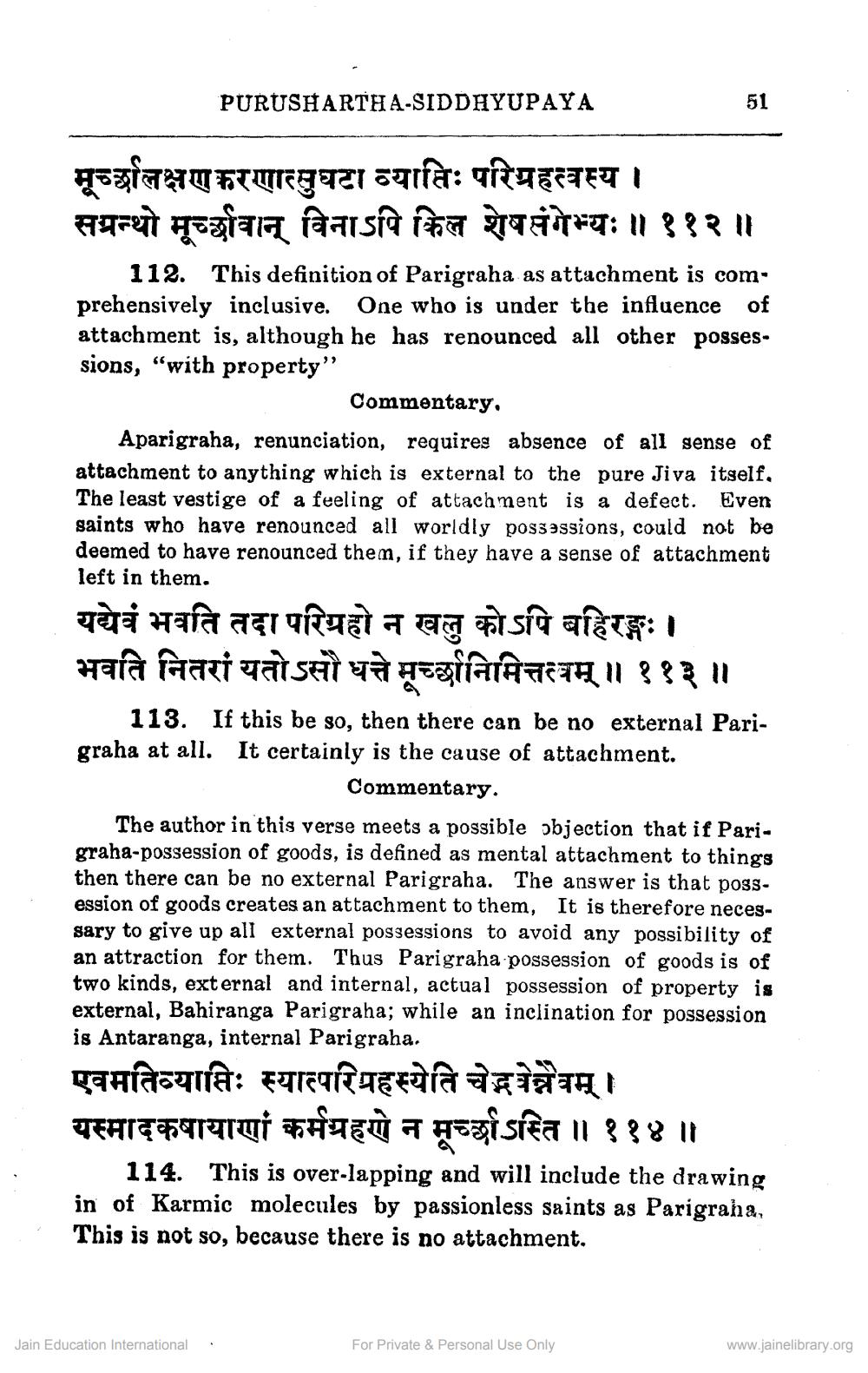________________
PURUSHARTHA-SIDDHYUPAYA
मूर्च्छा लक्षण करणात्सुघटा व्याप्तिः परिग्रहत्वस्य ।
समन्थो मूर्च्छावान् विनाऽपि किल शेष संगेभ्यः ॥ ११२ ॥
112. This definition of Parigraha as attachment is comprehensively inclusive. One who is under the influence of attachment is, although he has renounced all other possessions, "with property"
51
Commentary.
Aparigraha, renunciation, requires absence of all sense of attachment to anything which is external to the pure Jiva itself. The least vestige of a feeling of attachment is a defect. Even saints who have renounced all worldly possessions, could not be deemed to have renounced them, if they have a sense of attachment left in them.
यद्येवं भवति तदा परिग्रहो न खलु कोऽपि बहिरङ्गः । भवति नितरां यतोऽसौ धत्ते मूर्च्छानिमित्तत्त्रम् ॥ ११३॥
113. If this be so, then there can be no external Parigraha at all. It certainly is the cause of attachment. Commentary.
The author in this verse meets a possible objection that if Parigraha-possession of goods, is defined as mental attachment to things then there can be no external Parigraha. The answer is that possession of goods creates an attachment to them, It is therefore necessary to give up all external possessions to avoid any possibility of an attraction for them. Thus Parigraha possession of goods is of two kinds, external and internal, actual possession of property is external, Bahiranga Parigraha; while an inclination for possession is Antaranga, internal Parigraha.
एवमतिव्याप्तिः स्यात्परिप्रहस्येति चेद्भवेन्नैवम् । यस्मादकषायाणां कर्मग्रहणे न मूर्च्छा ऽस्ति ॥ ११४॥
Jain Education International
114. This is over-lapping and will include the drawing in of Karmic molecules by passionless saints as Parigraha, This is not so, because there is no attachment.
For Private & Personal Use Only
www.jainelibrary.org




